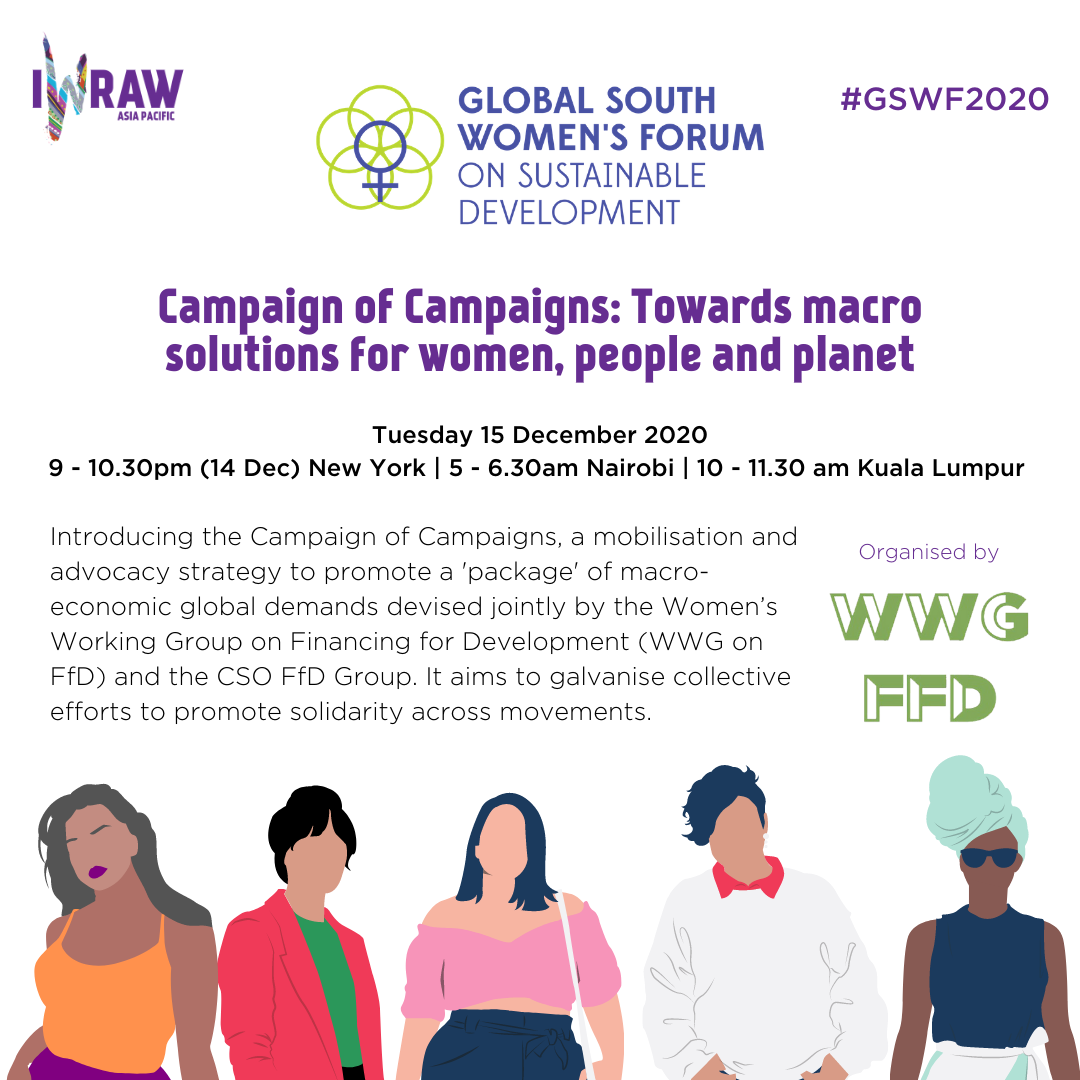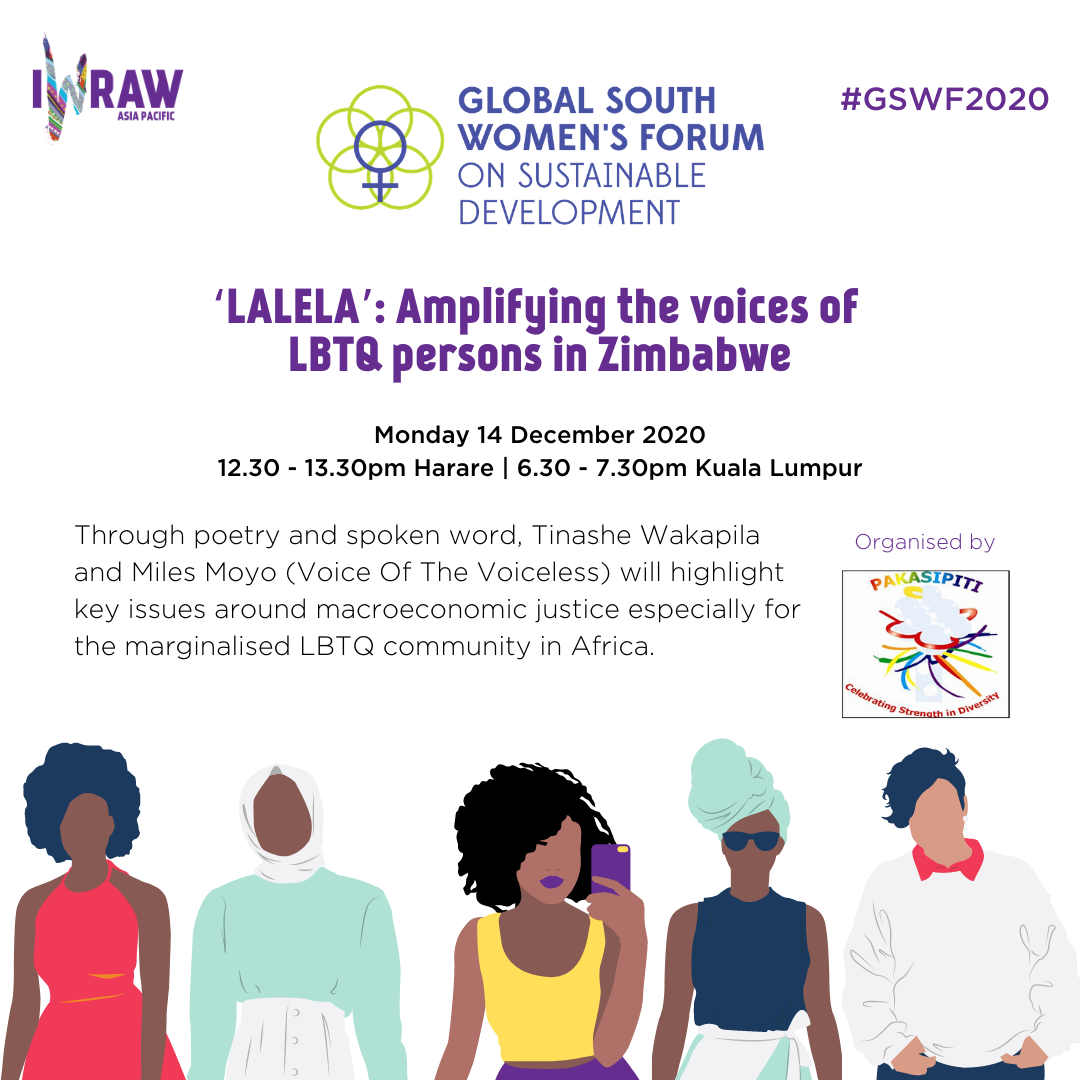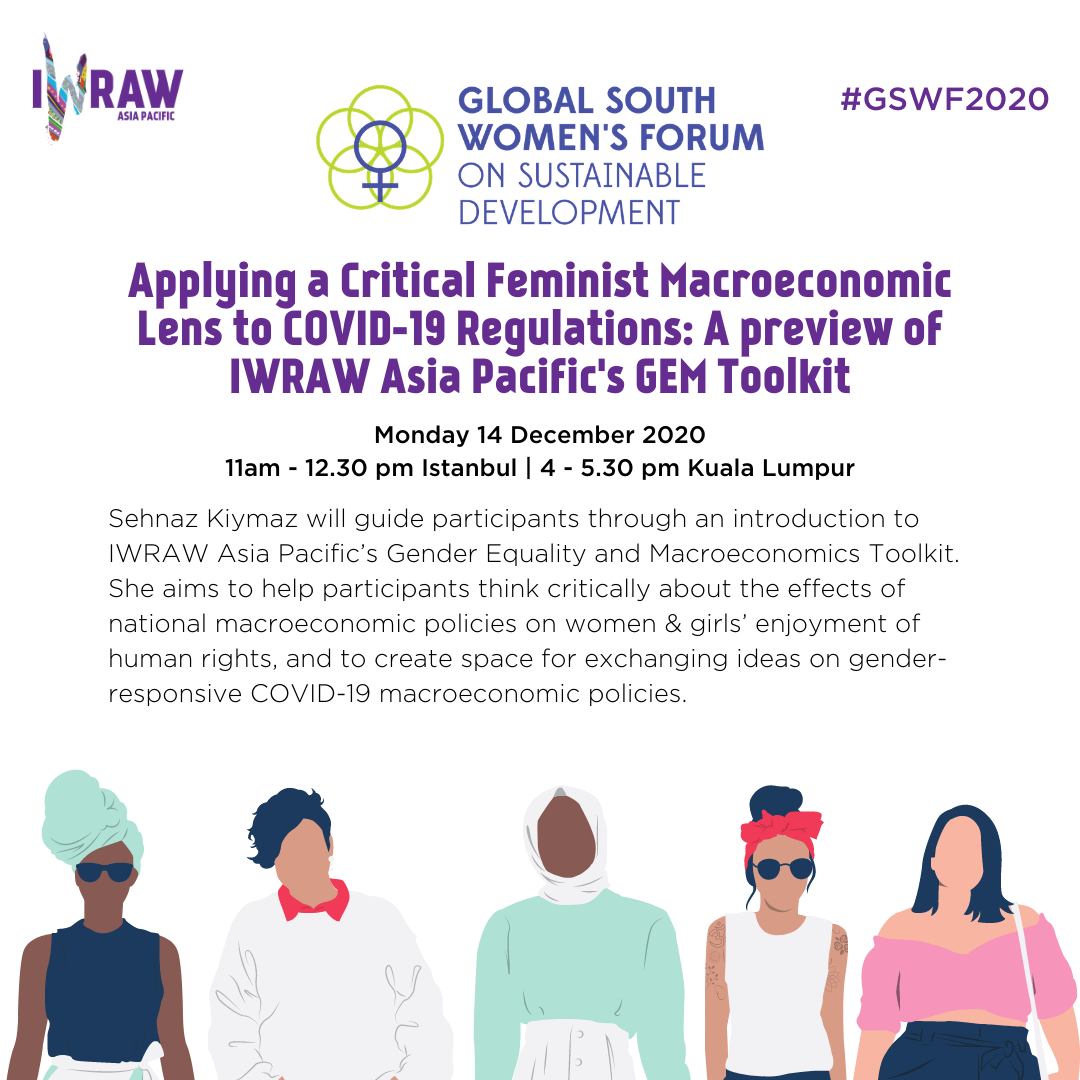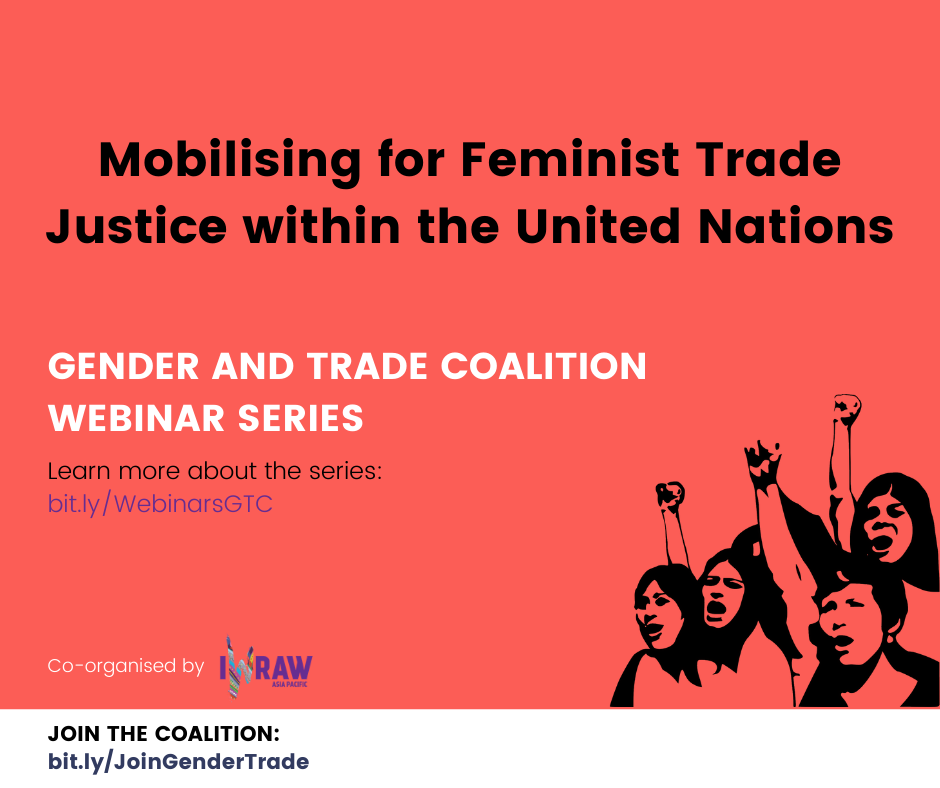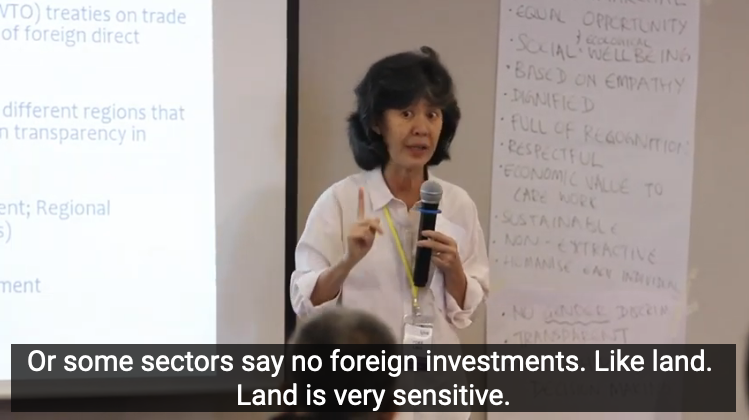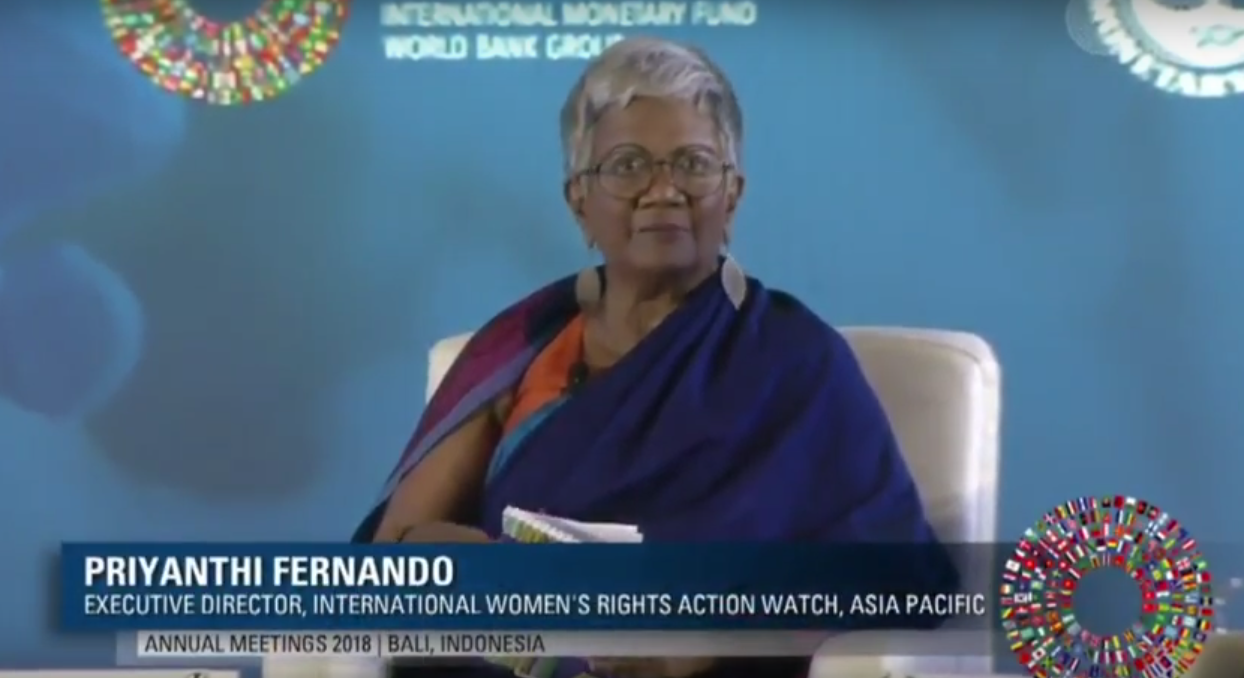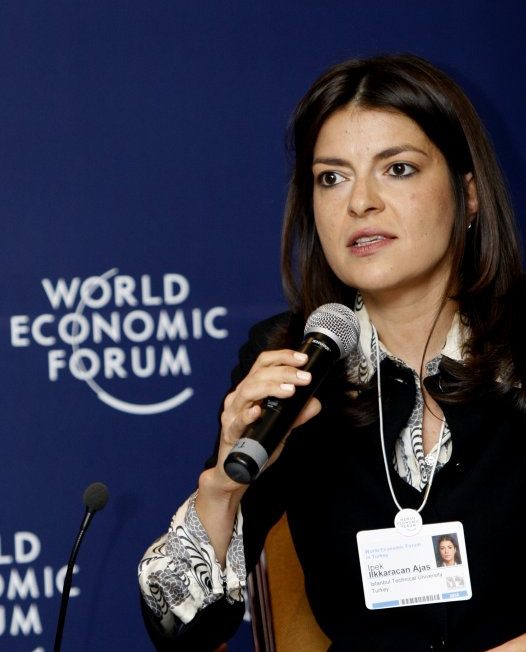Campaign of Campaigns: Towards Macro Solutions for Women, People and Planet
December 2020
This session at Global South Women’s Forum 2020 introduced the Campaign of Campaigns, a mobilisation and advocacy strategy to promote a ‘package’ of macroeconomic global demands devised jointly by the Women’s Working Group on Financing for Development (WWG on FfD) and the CSO FfD Group. It aims to galvanise collective efforts to promote solidarity across […]
Read More‘LALELA’: Amplifying the voices of LBTQ persons in Zimbabwe
December 2020
Presented by Pakasipiti, this session at Global South Women’s Forum 2020 highlights key issues around macroeconomic justice especially for the marginalised LBTQ community in Africa, using poetry and spoken word. With speakers Miles Moyo (Voice of the Voiceless) and Tinashe Wakapila. Duration: 1:31:05 Subtitles: None
Read MoreFollowing the Money: The Kafala System and Chain of Domestic Workers’ Migration
December 2020
The Kafala sponsorship system is a set of policies and laws that tie migrant workers’ status to their sponsor. Migrant domestic workers are governed by this system and excluded from labour laws in the Middle East and Gulf countries. This session at Global South Women’s Forum 2020 addresses the interlinkages between domestic work, care labour, […]
Read MoreApplying a Feminist Macroeconomics Lens to COVID-19 Regulations: A Preview of IWRAW AP’s GEM Toolkit
December 2020
An introduction to IWRAW Asia Pacific’s Gender Equality and Macroeconomics Toolkit. This session at Global South Women’s Forum 2020 aimed to help participants to critically think about the effects of national macroeconomic policies on women and girls’ access, exercise and enjoyment of human rights, and to create space for exchanging ideas on gender-responsive COVID-19 macroeconomic […]
Read MoreBorn into Debt
December 2020
Launched at the Rise to the Beat of Debt Justice Concert, organised by Asian People’s Movement on Debt and Development (APMDD), Fight Inequality, 350.org, ActionAid and the Asian Movement for People’s Music, this song by M E G D K addresses the illegitimate and unsustainable debt for which coming generations will suffer. Shared with kind […]
Read MoreBreaking Silos, Building Movements: Connecting Gender Equality and Macroeconomics
November 2020
How do global economic and development structures impact the daily lives of women? Experts Barbara Adams (Global Policy Forum), Emma Bürgisser (Bretton Woods Project), Eleanor Dictaan-Bang-oa (Tebtebba), Azra Talat Sayeed (Roots for Equity) and Chantal Umuhoza (SPECTRA: Young Feminists Activism) explain macroeconomic policies and their relevance to the struggle for gender equality, particularly in the […]
Read MoreMobilising for Feminist Trade Justice within the United Nations
August 2020
The movement for feminist trade justice is long-standing and growing. Global South feminists have been ringing alarm bells for decades – providing meticulous analysis on the devastating impact of trade liberalisation, privatisation, and deregulation on poor and marginalised groups of women and demonstrating the inextricable link between the current global trade system, colonialism and imperialism. […]
Read MoreCorporate Rights vs Human Rights: A Presentation by Chee Yoke Ling
2019
How do neoliberal economic structures and macroeconomic policies affect women’s rights and gender equality? With the rules of play written by corporates, women’s human rights activists need to be cognizant of the role of international financial institutions and trade agreements. Presented at the Southeast Asia Regional Consultation of the Global South Women’s Forum on Sustainable […]
Read MorePriyanthi Fernando of IWRAW AP at the IMF/World Bank Annual Meeting
October 2018
What are the biggest barriers to women’s progression, and what role can the public and private sectors play? Priyanthi Fernando, executive director of IWRAW Asia Pacific, speaks at the IMF gender seminar ‘Empowering Women in the Workplace’. In these clips, she shares her views on the event hashtag #Women4Growth; highlights barriers to empowerment, particularly for […]
Read MoreFour Things to Know about the Purple Economy
October 2018
A two-page briefing paper in which Professor Ipek Ilkkaracan outlines her vision of an economic model which recognises care work. Until economic policies are implemented which reduce and redistribute care work, gender inequalities will not be addressed.
Read More

